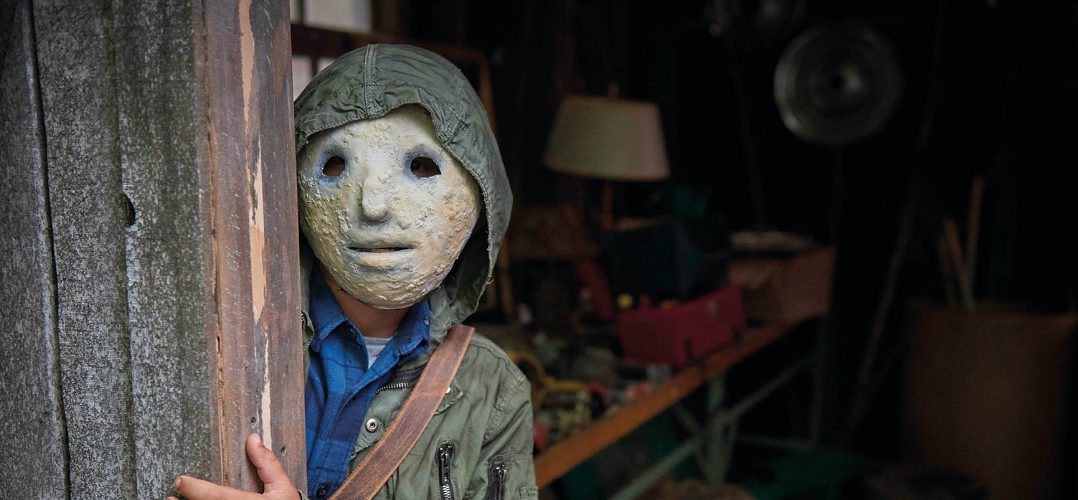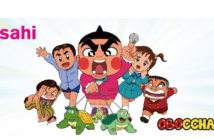The most obvious evidence of the international appeal of children’s live action programming is the pipeline of shows coming out of vertically integrated studios such as Nickelodeon and Disney.
Nina Hahn, senior vice-president of production and development at Nickelodeon International, says her company is “genre blind” when it comes to the distinction between animation and live action. “For us, it’s all about finding the right content for kids. One of the great strengths of live action is that you can get it to market faster than animation, making it more reflective of trends.”
Hahn says Nickelodeon’s success with live action is built on a range of development and production models. While the company is probably best known for Los Angeles-produced comedy series such as iCarly and The Thundermans, it has also enjoyed success with shows that have emerged out of an international model. I Am Frankie, for example, started as a Spanish-language series in Latin America (Yo Soy Frankie) and was then adapted into English. “That means we have two versions we can roll out internationally,” Hahn says. “Hunter Street went through a similar process and is now available in its original Dutch version, as well as in English.”
For a show to capture kids’ imaginations across borders, strong production values, great writing and solid research are essential. Hahn gives an example of why research matters: “A few years ago we were getting feedback that kids found their parents embarrassing, so we emphasised a ‘no parents allowed’ philosophy in our shows. But this sentiment has shifted and, now, kids see family as being their ‘tribe’. ‘Parents as friends’ is something we’ve consciously been able to feed into shows.”

Nick also makes a point of staying across trends in digital media. Social-media star JoJo Siwa, for example, has appeared for Nick as a show host, in a TV movie and as a star of her own reality series. “We now have a deal with her and are looking at all the options,” Hahn adds.
While Nick and Disney are major players in the kids’ live action genre, they are not the only gigs in town, says Josh Scherba, executive vice-president of content and distribution at DHX Media: “We have our own channels in Canada and there are other players like the BBC, ZDF and ABC Australia in the kids’ arena. With Amazon and Netflix also active in this area, it’s possible to develop an international co-production or look for a big pre-sale to support a show.”
A current example, Scherba says, is Creeped Out, a spooky anthology series co-produced by CBBC and DHX-owned Family Channel in Canada. DHX has the distribution rights for the show, which Scherba calls “a kind of Black Mirror for kids”. He adds: “We’re aiming to place it with a big global platform to create a buzz around the launch.”
Scherba believes Creeped Out’s anthology format is a good way of getting around the usual restriction of co-production: “We’re not having to shoehorn elements into the show. Because each episode is an individual story, it’s easier for us to produce in a way that utilises the skillsets available to us in both Canada and the UK.”
DHX’s extensive live action catalogue includes Degrassi, Make It Pop, Hank Zipzer and a new show called Bajillionaires “about a group of young kids trying to invent something”, Scherba says. “It’s like Silicon Valley for kids. It’s all about their resilience as they attempt to discover the next big thing that will make them rich.”
There is also a supernatural pilot called Dark Haven High, reflecting the current trend for children’s live-action with some kind of fantasy dimension. In part, this is because Nick and Disney have sewn up the market for multi-camera sitcoms. But it is also the case that fantasy series tend to travel well, says Steven Andrew, UK creative director at Zodiak Kids Studio. “Witches, wizards, aliens, ghosts and the like are a neutral landscape,” Andrew adds. “They help get around the little differences that can be a stumbling block.”
Andrew, a kids’ industry veteran, recalls the success of Wolfblood from his time at the BBC. He also cites the mermaid-themed projects that ZDF Enterprises (ZDFE) distributes on behalf of Australia’s Jonathan M Shiff Productions. H2O Just Add Water has sold to 120 countries, while its sequel, Mako Mermaids, has been picked up by Netflix for the global market. Recently, ZDFE has had particular success selling kids’ live-action to channels in Asia, including the Philippines, Vietnam and Thailand, as well as the pan-regional network HBO Asia.
Other fantasy-driven successes include The Worst Witch, a BBC, ZDF and Netflix co-production based on the books by Jill Murphy. ZDFE is also back in the international market with Jonathan M Shiff’s latest children’s project, The Bureau Of Magical Things. Filmed in Australia, the show follows the adventures of a teenage girl who acquires magical powers when caught in a clash between an elf and a fairy.
Hahn points out that Nick is also active in the fantasy/magic space. In May, the company unveiled plans for a new 20-part show called Knight Squad, which is set at a magical school for young knights.
Zodiak’s Andrew says another genre that travels well is music/performing arts-based shows. His company has made The Lodge for Disney, while DHX’s contribution to the genre includes Backstage, licensed to Disney and Netflix.
“Well-made performance shows have an aspirational feel that audiences like,” Andrew says. “But they are also very visual with lots of action. That’s something they share with fantasy series and is another reason they travel well. It’s important not to be too ‘verbal’ if you want a show to travel. And you probably need the bold, unambiguous characterisation that has always helped telenovelas to stand out.”
Another model that seems to work at international level is the co-pro, in which the story’s lead character visits another country. UK producer Lime Pictures, for example, has enjoyed success with Free Rein, which aired on Netflix. The storyline turns on a 15-year-old American girl who visits a horse stable in the UK. Zodiak’s slate, meanwhile, includes Joe All Alone — about a 13-year-old boy whose uneasy life starts getting better after his mother and her objectionable boyfriend leave him behind while they holiday in Spain — from Joanna Nadin’s book; and CBBS’ Secret Life Of Boys, in which an Australian girl comes to say with her four British cousins. An added point of interest about Secret Life Of Boys, Andrew says, is that it offers interactive elements that deepen engagement via character insights, story secrets and additional jokes.
While the majority of live-action shows for kids are aimed at the eight-to-12 tween market, a few companies are having success with live-action for younger kids. Darrall McQueen co-founder Billy Macqueen says his company’s hit series Topsy And Tim is one of a handful of shows that has given broadcasters the confidence to experiment with pre-school live-action.
“Topsy And Tim originated in the UK but has since done well in France and the US, where it airs on Universal Kids,” Macqueen says. “I think its ability to travel is partly down to the quality of the production and partly down to its emphasis on a universal theme, namely first experiences. Broadcasters also like the fact it has a high level of repeatability, which you can also see through the show’s views on BBC iPlayer.”
Darrall McQueen is now working on a new show for the same age group called Waffle The Wonder Dog, which Mcqueen believes can emulate Topsy And Tim’s international success: “Waffle is for the BBC, with DHX Media distributing. It has a talking dog, which we think will appeal to kids internationally. The fact that the initial order is 30 x 11 mins episodes is also appealing to broadcasters.”
One age group that does not see a lot of live-action are six- to nine-year-olds. This, however, is the segment that Brain Power Studios founder and president Beth Stevenson is exploring with The Ponysitters Club.
Having produced or exec produced 35 children’s series, Stevenson knows her market well and believes the show’s emphasis on empathy, inclusion and compassion will cross borders. “The thing that’s missing from the market is classic family series like The Waltons and Little House On The Prairie — heart-warming shows where the kids have key roles,” she says. “We wanted to address that with The Ponysitters Club. The problem with a lot of today’s light-hearted comedy is that it doesn’t really allow you to address the issues facing kids in a satisfactory way.”
The first broadcaster to jump on board The Ponysitters Club, which is being produced in Canada, was Discovery Latin America: “I think animal care is an area that appeals to audiences around the world,” Stevenson adds. “The show is based around some kids working on a horse-rescue ranch. They get to ride the horses as well as take care of them. That gives them a sense of responsibility and empowerment, which kids will relate to.”

To date, many of the kids’ live-action series that travel have originated in markets such as the US, the UK, Canada and Australia. At the younger end of the spectrum, Sinking Ship’s Dino Dana (Canada) and ABC ME’s Little Lunch (Australia) are examples of how the live-action genre is being stretched, the former using CGI and the latter a mockumentary set in a primary-school playground. Another illustration of Australia’s expertise in live-action is Nowhere Boys, a Matchbox Pictures’ production for ABC3 that has so far run for three series and inspired an 80-minute feature film. Canada’s Odd Squad (Sinking Ship) and the UK’s Horrible Histories (Lion Television) are also well-travelled kids’ live-action series.
Mainland Europe’s primary contribution, as illustrated by ZDFE, is as distributor or co-pro partner. Another example of this is Studio 100 Media, which came to MIPCOM last October with two kids’ live-action series from Australia: Drop Dead Weird and Random And Whacky.
Drop Dead Weird is a good example of how co-pro and cross-cultural experiences can dovetail neatly, especially if there is a fantasy twist. In this show, an Australian family moves to Ireland to run a B&B in a remote seaside village. However, things are complicated by the fact that the parents are zombies.

One company changing the sector’s dynamics is France’s Cottonwood Media, whose hit series Find Me In Paris cleverly deploys both performance and fantasy. Produced in partnership with ZDF, the show centres on a young dancer — and princess — who travels forward in time from 1905 to the modern day. The first season of the show was pre-sold to Hulu in the US, France Televisions, Disney France and Italy, ABC Australia and VRT Belgium. Find Me In Paris has now been recommissioned. Cottonwood president and founder David Michel echoes Zodiak Kids’ Andrew when he says: “A lot of kids’ drama doesn’t travel because it’s too culturally specific.” He adds: “I think the combination of high production values and a twist on a classic story helped our show travel. We set out to make a kids’ show but with primetime sophistication, so we put a lot of emphasis on the scripts.”
In Michel’s opinion, one of the challenges with the children’s business is that “people tend to pigeonhole what they think kids’ content should be. They are second guessing what the market wants instead of taking creative risks, and that’s where they go wrong.”
Italian broadcaster De Agostini is entering the kids’ live-action space with New School, a show for seven- to 12-year-olds. Launched in December 2017, the 26 x 26 mins first season follows a group of children who join a new school, where they stumble across an out-of-service room that only kids can enter. The series has already been renewed by De Agostini for a second season.
Europe’s growing impact on children’s live-action can be seen in the latest crop of shows aimed at the older end of the market — teens traversing into adulthood. German kids’ channel KIKA, for example, commissioned Five2Twelve as a way of appealing to an older audience. This show centres on five teenage boys who have all been in trouble with the police.
Also noteworthy is NRK Norway’s hit youth series Skam (Shame), which focuses on kids at a high school attempting to deal with issues such as eating disorders, sexual assault, homosexuality, mental health and cyberbullying.
The challenge with shows like these is that they can be too culturally specific to travel. One solution is to format the show. A breakout hit in its own region, Skam was picked up for reversioning in France, Germany, Spain, Italy and the Netherlands in late 2017. Entrepreneur Simon Fuller also picked up the English-language rights to the show and has since licensed it to Facebook Watch, which will make a US version.
This article was written by Andy Fry, edited by Julian Newby, and originally appeared in the MIPTV 2018 Preview magazine , which you can read in full online, here!
Find out more about MIPTV 2018’s focus on kids’ TV and live action here…




